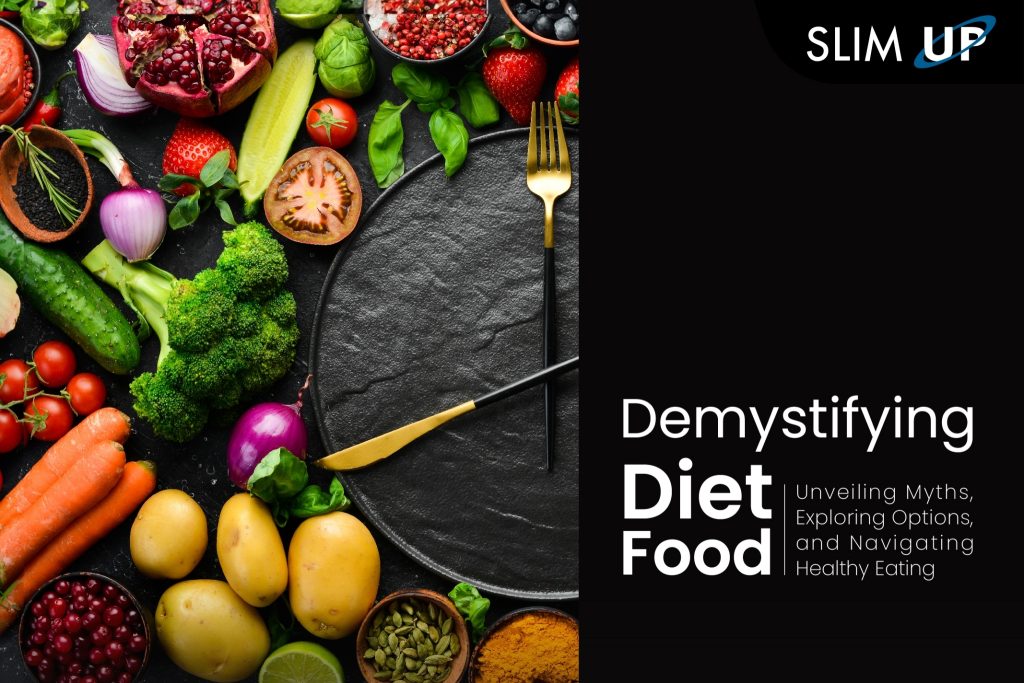
Decoding Nutritional Choices: Debunking Misconceptions, Exploring Alternatives, and Guiding Healthful Eating
In the realm of nutrition and healthy eating, the term “diet food” often evokes a mix of curiosity, skepticism, and confusion. With an abundance of conflicting information and fad diets circulating, it’s essential to separate fact from fiction when it comes to choosing the right foods for your well-being. This comprehensive article delves into the concept of diet food, dispelling myths, highlighting the importance of balanced nutrition, and guiding you toward sustainable choices for a healthier lifestyle.
Defining Diet Food: Beyond Stereotypes
“Diet food” is a term commonly associated with low-calorie, low-fat, or reduced-carbohydrate options. However, this narrow definition overlooks the broader context of nourishment and health. True diet food isn’t just about weight loss; it’s about providing your body with the nutrients it needs to function optimally.
Dispelling Diet Food Myths
- Myth: Diet Food is Bland and Boring: One of the most common misconceptions is that diet food lacks flavor. In reality, a well-balanced diet includes a variety of wholesome and flavorful options.
- Myth: All Diet Foods are Processed: Not all packaged foods labeled as “diet” are inherently unhealthy. It’s important to read labels and choose minimally processed options.
- Myth: Diet Foods Guarantee Weight Loss: Relying solely on labeled diet foods doesn’t guarantee weight loss. Sustainable weight management requires an overall balanced diet and lifestyle.
The Essence of Balanced Nutrition
- Essential Nutrients: A diet rich in whole grains, lean proteins, healthy fats, fruits, and vegetables provides essential nutrients such as vitamins, minerals, and antioxidants.
- Macronutrient Balance: Balancing carbohydrates, proteins, and fats supports energy levels, metabolism, and overall health.
- Fiber-Rich Foods: Foods high in fiber, like whole grains, legumes, and vegetables, aid digestion, promote satiety, and contribute to weight management.
Navigating the World of Diet Food Options
- Fruits and Vegetables: Packed with vitamins, minerals, and fiber, fruits and vegetables are a cornerstone of any healthy diet.
- Lean Proteins: Incorporating lean protein sources like poultry, fish, beans, and tofu supports muscle maintenance and repair.
- Whole Grains: Whole grains provide sustained energy and are rich in fiber, helping control blood sugar levels.
- Healthy Fats: Include sources of healthy fats, such as avocados, nuts, seeds, and olive oil, for heart health and satiety.
The Pitfalls of Highly Restrictive Diets
Extreme diets that focus solely on a limited number of foods or drastically restrict certain nutrients can lead to nutritional deficiencies, metabolic imbalances, and unsustainable eating patterns. Such diets may result in short-term weight loss but often fail to provide long-term benefits.
Cultivating a Sustainable Approach
- Mindful Eating: Pay attention to hunger and fullness cues, savor each bite, and enjoy your meals without distractions.
- Portion Control: Moderation is key. Portion control helps prevent overeating and supports weight management.
- Variety and Enjoyment: Embrace a diverse range of nutrient-rich foods to ensure you’re getting a broad spectrum of vitamins and minerals.
The Role of Individual Preferences and Needs
Diet food doesn’t have a universal definition; it’s about finding what works for you. Taking into account your dietary preferences, cultural influences, health goals, and lifestyle is essential for creating a sustainable eating plan.
The concept of diet food transcends the confines of labels and trends. It’s about making informed choices that nourish your body and mind. By dispelling myths, focusing on balanced nutrition, and embracing a holistic approach, you can navigate the world of food with confidence. Remember, the goal is not just to eat, but to thrive by fostering a positive relationship with food and nurturing your well-being for the long term.